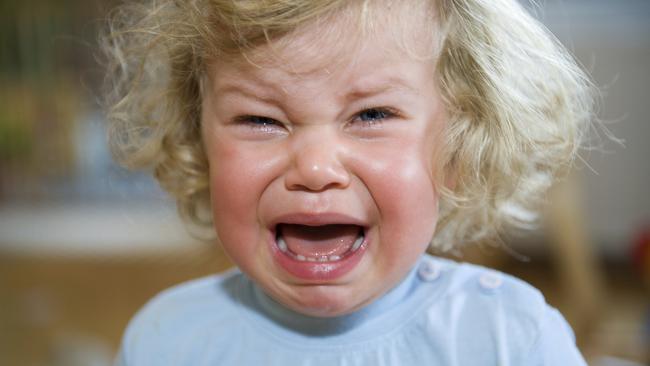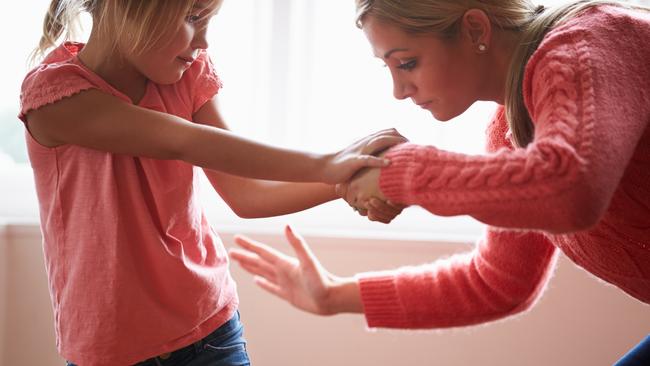Call for smacking ban after study reveals 60pc of Aussie kids were physically punished
Smacking children could have a catastrophic effect on their mental health, with a study revealing how many Aussies physically punish their kids.
Victoria
Don't miss out on the headlines from Victoria. Followed categories will be added to My News.
Six in ten young Australians have been smacked repeatedly by their parents, and are nearly twice as likely to develop anxiety and depression as other teens and adults, new research shows.
The shocking findings of a national study of 8500 Australians have led to calls for the removal of the legal defence of “reasonable chastisement” in Victoria, which allows parents to use physical violence on their children.
“Children deserve equal protection against physical violence as adults,” one of the lead researchers, Australian Catholic University Professor Daryl Higgins, said.
“In Australia right now, you have better protection from violence as a female adult or a pet than you do as a child,” he said.
“If you want to reduce population level anxiety for women and men, don’t hit them as children. There is a very real connection between corporal punishment and current and lifelong experience of mental ill health,” Professor Higgins, from the Institute of Child Protection Studies, said.

The findings come as other Australian studies have found 50 to 80 per cent of parents admit to smacking their child, with many uncertain about where to draw the line or what constitutes abuse.
The preliminary results from the Australian Child Maltreatment Study shows 61 per cent of Australians aged 16 to 24 experienced corporal punishment from their parents on more than three occasions as a disciplinary strategy while growing up.
Initial findings to be presented at the Australian Institute of Family Studies conference on Thursday show females who experienced corporal punishment from their parents were 1.8 times more likely to have a major depressive disorder in their lifetime, and 2.1 times more likely to experience generalised anxiety.
Males were 1.7 and 1.6 times more likely to develop depression and anxiety respectively.
Professor Higgins said Australian states and territories should follow the lead of 62 other countries and close defence loopholes making it legal for parents to hit their kids if they use “reasonable” force during discipline.
Victoria does not have specific legislation regarding parents using physical punishment on their children. Common law offers parents and caretakers a defence for “parental use of physical punishment”.
Meanwhile in NSW, it is illegal for parents and guardians to strike children on their head or neck.
A child’s pain should not last longer than a “short period” if a parent hits them anywhere else on their body.
Queensland’s domestic discipline legislation states both teachers and parents can use force that is “reasonable under the circumstances” but does not provide further detail.
Professor Higgins said the current survey also shows attitudes to violence are changing.
The study shows support for corporal punishment as a form of discipline for children dropped from 37.9 per cent among those aged over 65 to 14.8 per cent for those aged 16-24.

Professor Higgins said violence cannot be excused “as a one-off or just one hit” because the study showed it had a negative impact.
“The only benefit is immediate compliance but we know it’s clearly linked to long term harm,” he said.
“Parents and caregivers need to be using positive parenting techniques rather than outmoded forms of discipline that cause harm and are associated with other forms of abuse,” Professor Higgins said.
Sweden was the first country in the world to outlaw all forms of corporal punishment, including in the home, in 1979.
With some of the toughest legislation in the world, the country removed the defence for parents who injured their children using physical punishment in 1957.
Sixty-two countries have followed suit since then, with the Republic of Korea and Colombia the latest nations to ban the form of discipline in 2021.
In Spain, where the parents are also banned from using the punishment method on their children, corporal punishment falls under the country’s definition of violence against children.
More Coverage
Originally published as Call for smacking ban after study reveals 60pc of Aussie kids were physically punished




